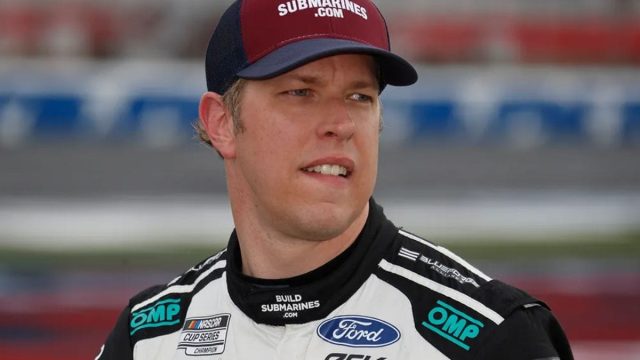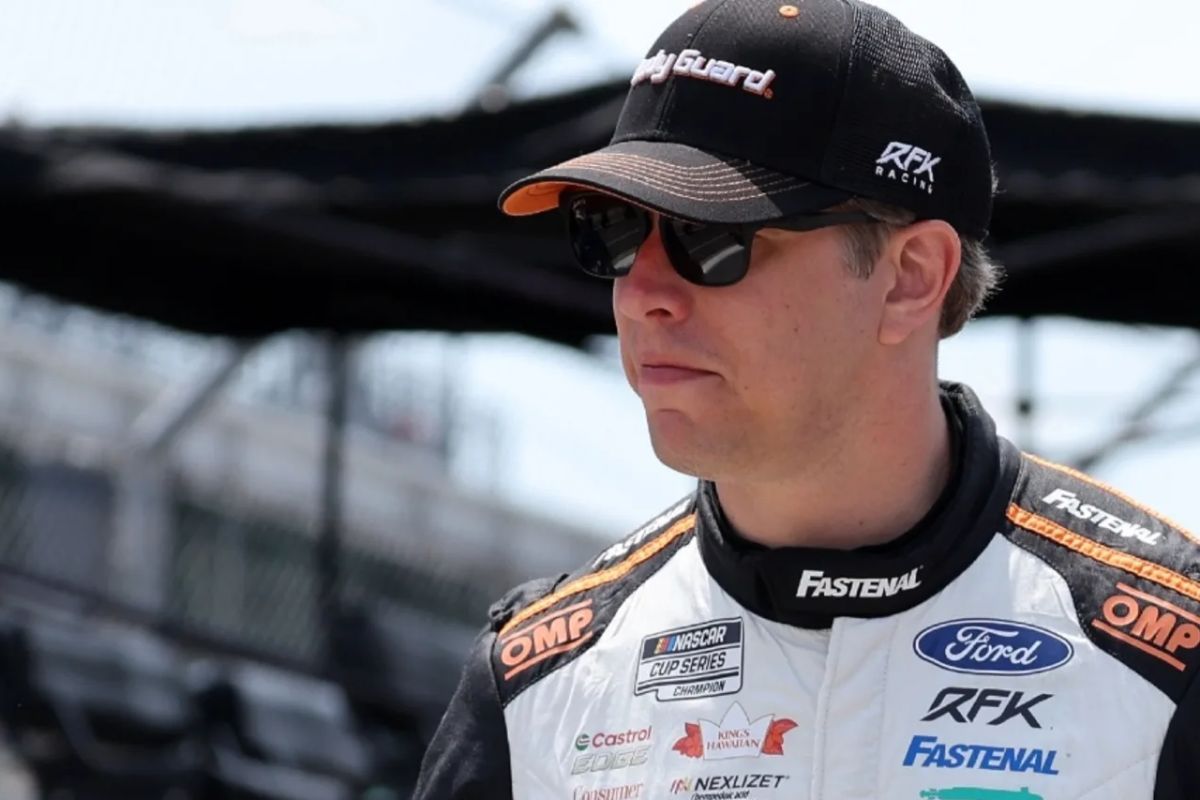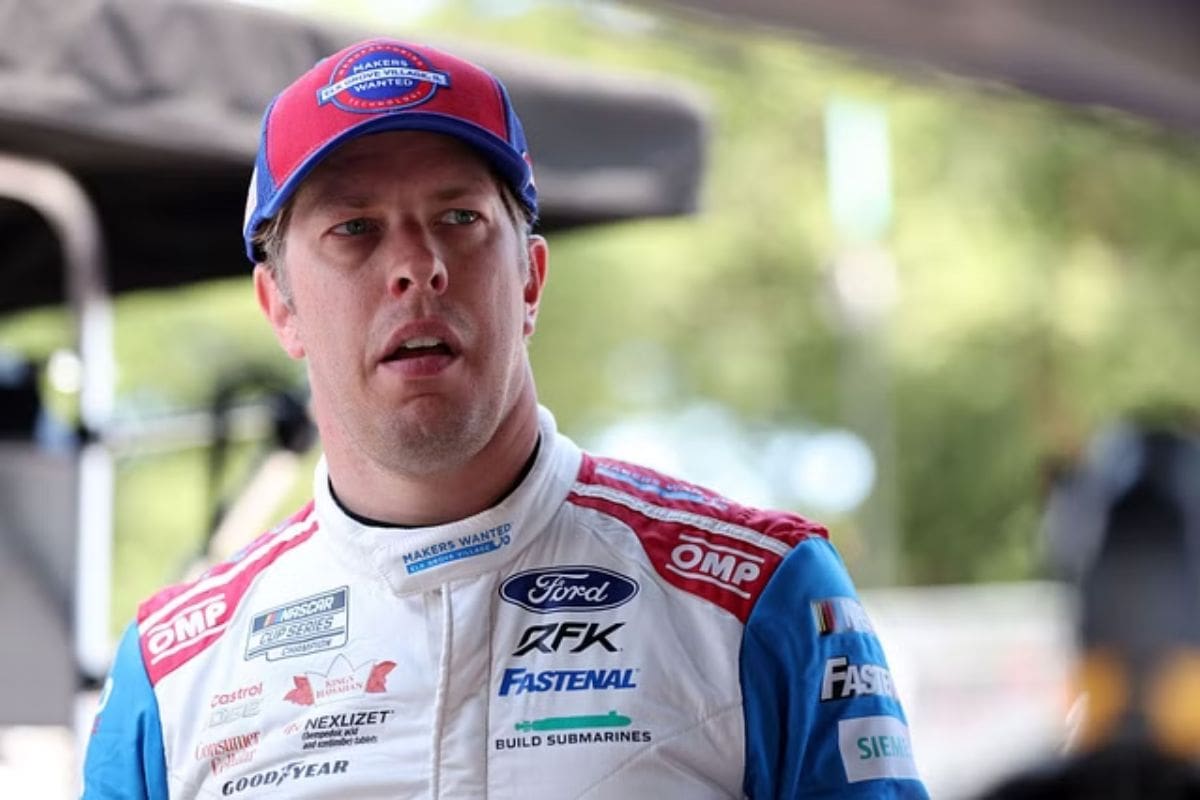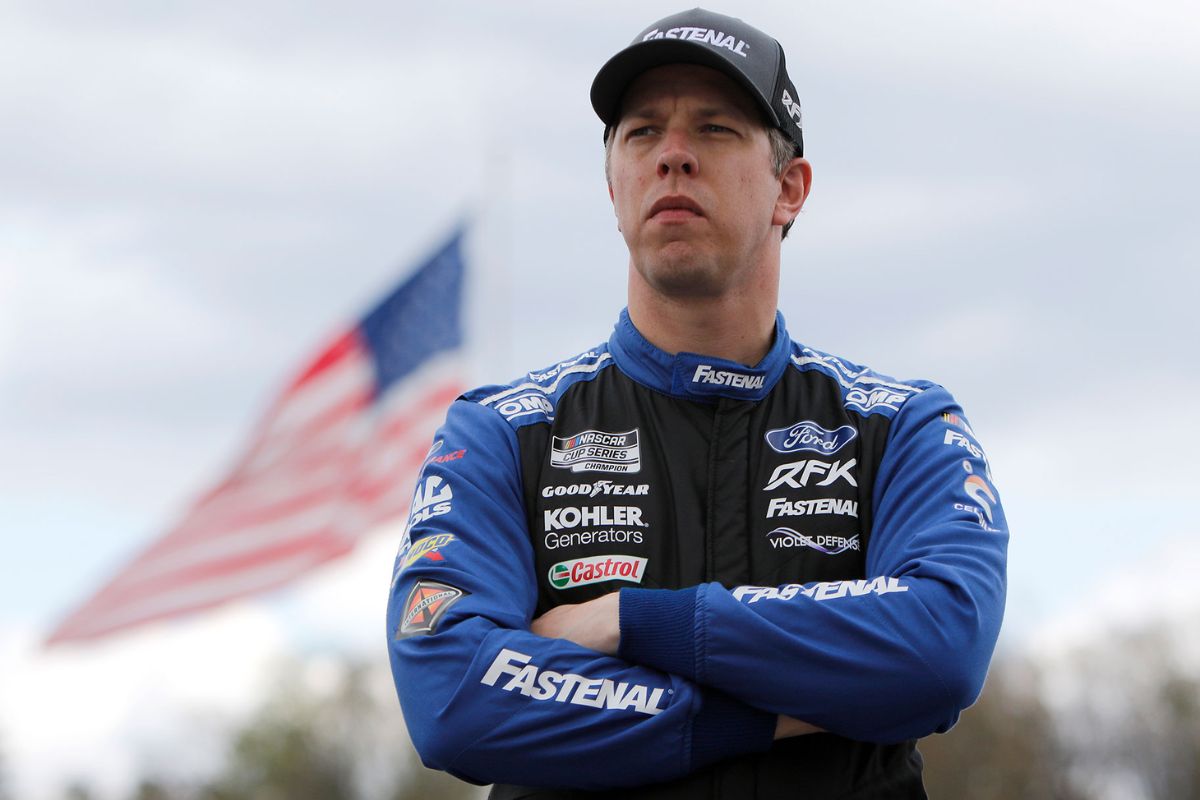Brad Keselowski Slams NASCAR’s Daytona Decision: Brad Keselowski‘s recent outburst regarding NASCAR’s controversial decision during the Daytona race has reignited discussions about the consistency and transparency of officiating in the sport. His poignant question, “Can they not see?” reflects not only his personal frustration but also a broader sentiment among drivers grappling with perceived injustices that could affect their championship aspirations. This incident raises critical questions about the implications of such rulings on team morale and competitive integrity. As the dust settles, one must consider whether this moment will catalyze a deeper examination of NASCAR’s governance and its impact on the sport’s future.
Key Highlights
- Brad Keselowski expressed frustration over NASCAR’s restart decision during the Coke Zero Sugar 400, feeling it was unjust and detrimental to his race strategy.
- The decision led to a pass-through penalty that significantly impacted Keselowski’s competitive position in the race.
- Previous incidents highlight ongoing issues with NASCAR officiating, reflecting a broader frustration among drivers about consistency and fairness.
- Keselowski’s outburst on the radio showcased the emotional toll of racing and the pressure faced by teams amidst officiating disputes.
- Despite setbacks, Keselowski demonstrated resilience by maintaining a strong points standing through consistent performance and tactical race management.
Brad Keselowski’s Daytona Struggles
Struggling to regain his footing in a tumultuous race, Brad Keselowski faced unexpected challenges during the Coke Zero Sugar 400 at Daytona. A driver renowned for his skill on superspeedways and the holder of three Daytona victories, Keselowski’s performance this year was particularly damaged by circumstances beyond his control.
As he navigated the such environment of the race, the RFK Racing driver found himself embroiled in a series of incidents that undermined his competitive edge. Despite his established track record at Daytona and Talladega, the race unfolded in a way that was evocative of the unpredictable nature of superspeedway racing.
Competing in Stage 3, Keselowski encountered a considerable setback that was largely attributed to decisions made by NASCAR’s governing body. Such rulings can often feel arbitrary, inciting frustration among seasoned competitors who thrive on consistency and fair play.
While Keselowski had already secured his place in the playoffs with a victory at Darlington, the emotional toll of the Daytona race was palpable. His teammate, Chris Buescher, was struggling to uphold his playoff position, adding to the weight of the moment.
Radio Sneak-Peek into Keselowski’s Fury
As Brad Keselowski grappled with the fallout from his tumultuous Daytona experience, the frustrations he expressed over the radio during the race offered a revealing insight into the mindset of a seasoned competitor facing adversity.
The No. 6 Ford had showcased raw speed, consistently leading and maintaining a strong position until a critical restart decision derailed his pursuit of victory.
The crucial moment came when Keselowski lined up for the restart with 16 laps remaining. Despite his impressive performance, NASCAR officials perceived an infraction, claiming he had accelerated prematurely.
The radio exchanges captured the palpable tension within the RFK Racing team. Crew chief Matt McCall’s resigned acknowledgment of a possible restart violation highlighted the weight of the situation. Meanwhile, spotter T.J. Majors reminded Keselowski of the necessity to adhere to NASCAR’s ruling, accentuating the harsh realities of competitive racing.
“We’ve got to come do a pass-through (penalty) here, Brad.” However, the veteran driver could then be heard fuming vigorously: “Can they not see, he got hit from behind and spun his tires? I mean s**t, I can see it from my seat.” – T.J. Majors
PENALTY FOR BRAD KESELOWSKI.
He jumped the restart over Austin Cindric. #NASCAR pic.twitter.com/yU1b1wsSnG
— NASCAR on NBC (@NASCARonNBC) August 25, 2024
Keselowski’s response, however, was a fervent indictment of the call’s validity: “Can they not see, he got hit from behind and spun his tires?” His frustration emphasized the growing sense of injustice felt by drivers when faced with what they perceive as questionable officiating.
This passionate outburst not only reflected a moment of personal grievance but also showcased the broader struggle within the sport between individual merit and regulatory oversight.
Not the First Time for Keselowski
Frequently finding himself at odds with NASCAR’s officiating, Brad Keselowski‘s recent outburst over a restart penalty at Daytona is not an isolated incident in his racing career. This pattern reflects not merely a personal grievance but a broader commentary on the inconsistencies within NASCAR’s regulatory framework.
In the 2015 Sylvania 300 at New Hampshire, Keselowski faced similar scrutiny when he was penalized for a restart violation. Notably, that incident drew support from none other than the driver who stood to gain from the penalty, Greg Biffle, who noted that Keselowski was effectively even with him entering Turn 1.
“You can look at that restart and Brad and I were even going into Turn 1. I think the restarts people were complaining about was (Matt Kenseth) at Richmond, when he was 2 ½ car lengths ahead of the field going into Turn 1 – that’s where we need supervision. There is going to be gamesmanship and we need that. Let us have our fun in the (zone) as long as it’s relatively even. Give us a quarter of a fender or something.” – Biffle
Keselowski’s remarks during that race highlighted a crucial dichotomy in the sport: the tension between maintaining competitive integrity and acknowledging the inherent entertainment aspect of racing. His assertion that “it’s an entertainment sport, not a fair sport” encapsulates a sentiment shared by many drivers who navigate the fine line between tactical maneuvering and regulatory compliance.
The lack of protest from other competitors regarding the recent Daytona penalty further highlights the complexity and subjectivity of race officiating.
As Keselowski continues to voice his frustrations, it raises vital questions about the balance between competition and the spirit of the sport, ultimately inviting a reevaluation of NASCAR’s officiating practices.
Keselowski’s Points Standing
Brad Keselowski’s current points standing reflects both resilience and tactical insight as he navigates the complexities of NASCAR’s competitive landscape. Despite facing a series of restart penalties that could derail less experienced drivers, Keselowski has managed to maintain a safe position in the points standings, showcasing his adeptness at adapting to the challenges presented by the sport’s multifaceted nature.
As he heads into the Darlington race, Keselowski’s points advantage is significant. This tactical cushion allows him to focus on executing his race strategy without the immediate strain of needing a win.
Key factors contributing to his favorable standing include:
- Consistent Performance: Keselowski has shown remarkable consistency, managing to secure valuable points through solid finishes.
- Adaptation to Penalties: His ability to rebound from restart penalties demonstrates his mental fortitude and tactical adaptability, allowing him to utilize opportunities even in adverse situations.
- Tactical Race Management: With a clear understanding of how to navigate the intricacies of race dynamics, Keselowski has positioned himself to capitalize on others’ misfortunes while maximizing his own strengths.
As the season progresses, Keselowski’s points standing will remain a reflection of his ability to blend resilience with calculated risk-taking, critical traits for any aspiring champion in the sport.
News in Brief: Brad Keselowski Slams NASCAR’s Daytona Decision
The ongoing frustrations expressed by Brad Keselowski regarding NASCAR’s officiating decisions highlight a crucial issue within the sport: the perceived inconsistency and subjectivity of race regulations. Such controversies not only impact individual drivers but also reverberate throughout the competitive landscape, potentially influencing team morale and performance. As tensions rise, a reevaluation of officiating protocols may be necessary to restore trust and fairness in the racing community, ensuring that all competitors can compete on a level playing field.
ALSO READ: Brad Keselowskis Dramatic Top-5 Finish at Michigan: “We Were Having Some Issues”



